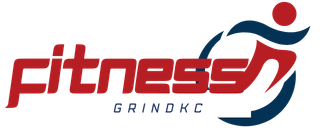In the dynamic landscape of the modern professional world, a successful career is not solely a product of happenstance; it’s the outcome of meticulous planning, continuous growth, and strategic decision-making. A career development plan serves as the compass that guides individuals toward their professional goals, ensuring they make purposeful strides toward success. In this article, we delve into the significance of a career development plan, its key components, and the transformative impact it can have on personal and professional growth.
Unveiling the Essence of a Career Development Plan
A career development plan is a personalized strategy that outlines the steps, goals, and resources required to achieve professional objectives. This structured roadmap is essential for anyone seeking to advance in their career, transition to a new role, or explore new opportunities. Whether embarking on the early stages of a career or aiming for the highest echelons of leadership, a well-crafted career development plan provides direction and purpose.
Self-Assessment: The Foundation of Strategic Growth
A successful career development plan begins with a thorough self-assessment. Individuals must critically analyze their strengths, weaknesses, skills, values, and long-term aspirations. This introspective process helps align personal goals with professional endeavors, ensuring that the chosen path resonates with the individual’s core values and capabilities.
Goal Setting: Defining the Path Ahead
Setting clear and achievable goals is a fundamental aspect of a career development plan. Goals provide direction, motivation, and a sense of accomplishment. Whether aspiring to reach a specific position, enhance a skill set, or explore new industries, well-defined goals clarify the desired outcomes and lay the groundwork for strategic planning.
Skill Enhancement: The Power of Continuous Learning
In a rapidly evolving job market, staying ahead requires continuous skill enhancement. A career development plan should include strategies for learning and improving skills relevant to the chosen field. This might involve pursuing formal education, attending workshops, taking online courses, or seeking mentorship. By cultivating a mindset of lifelong learning, individuals remain adaptable and competitive.
Networking and Relationship Building: Expanding Horizons
Effective networking is a cornerstone of career growth. Building relationships within one’s industry fosters opportunities for collaboration, mentorship, and professional advancement. A career development plan should outline strategies for networking, which may involve attending industry events, engaging on social media, and cultivating meaningful connections.
Setting Milestones: Tracking Progress
Milestones serve as markers of progress on the journey toward career goals. These can be smaller achievements that contribute to larger objectives. Regularly assessing progress against milestones allows individuals to celebrate successes, adjust strategies if needed, and maintain a sense of momentum.
A career development plan should embrace the reality of change. Industries evolve, opportunities arise, and unforeseen challenges emerge. Individuals must be adaptable and open to recalibrating their plan as circumstances shift. This flexibility ensures that career development remains relevant and effective in an ever-changing professional landscape.
Seeking Feedback and Mentorship: Invaluable Guidance
Feedback from peers, supervisors, and mentors is a critical component of career development. Constructive input helps individuals identify blind spots, refine their approach, and address areas of improvement. Mentorship offers valuable insights from those who have navigated similar paths, providing guidance and perspective.
Conclusion
A career development plan is a testament to an individual’s commitment to growth, progress, and fulfillment. It transforms the nebulous concept of a career into a strategic roadmap that aligns personal aspirations with professional objectives. By undertaking the journey of crafting and executing a career development plan, individuals empower themselves to take control of their professional destiny.
As we traverse the intricate landscape of our careers, a well-structured plan offers not only direction but also a sense of purpose and fulfillment. It’s a constant reminder that success is not a destination but a continuous journey of learning, adapting, and thriving. Through a career development plan, individuals can harness their potential, embrace change, and emerge as architects of their own success stories.



Leave a Reply